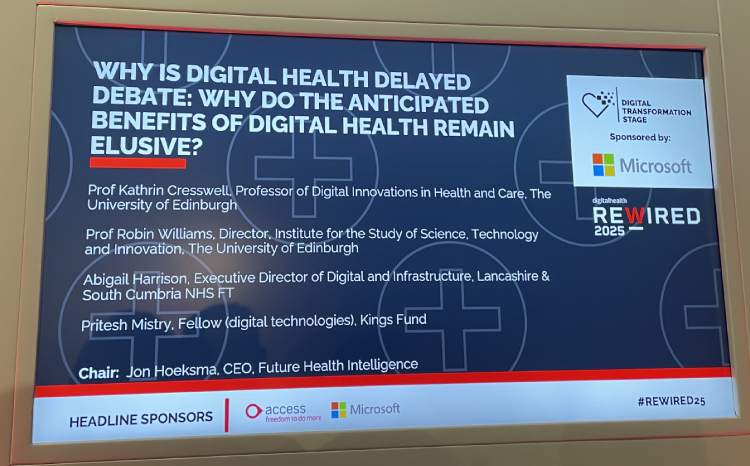Swindells: ‘fight on’ for informaticians
- 23 September 2010
The chair of BCS Healthcare, Matthew Swindells, has told a conference in Glasgow that the challenge for NHS informaticians “has never been greater.”
Speaking at BCS Health Scotland’s conference, Swindells warned that with limited funds around there would be “a fight on” for informaticians to get themselves, and the value of their work, noticed.
He added: “There’s going to be a fight on now as to whether new technologies will be purchased, informaticians will be needed, and academic work will be commissioned. All of that is going to be under threat.”
During his keynote speech, Swindells encouraged health informatics professionals to be confident enough to go to their chief executive and say "we can make a difference."
He told them they needed to be able to think of at least three technologies that they could take to their chief executive and say “we are confident that these will save you money."
Swindells, who took over the helm of BCS Health last year, said he was on a mission to raise the profile of health informaticians and bring them out of the back office and into the national debate.
He said that health IT professionals are often seen in the NHS as people who work behind the scenes; fixing networks, compiling statistics and writing reports that are never read.
By contrast, they need to be seen as the people who provide the information necessary to manage the NHS.
He added that senior executives in hospitals may have thought historically that they are “so clever that they do not need information to support their decision, but now that will change.”
Swindells highlighted the need for the NHS to make big productivity gains over the next four years and said that NHS IT will be vital to do that.
“We need to improve productivity by 20% over the next four years, there are very few organisations across the world that are capable of doing that let alone the NHS.
“If we can’t make information and technology work for the NHS then we haven’t got a cat in hell’s chance in delivering 20% productivity,” he said.




